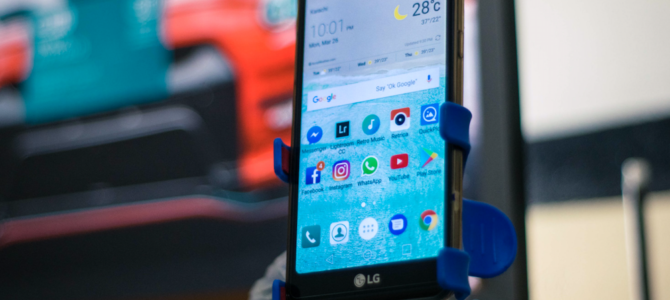
The Supreme Court heard oral arguments for Google v. Oracle on Oct. 7. The case involves several legal issues, all of which boil down to one principal question: Did Google cheat and steal its way to the top? While a decision on the case isn’t expected for a few months, the justices’ pointed questioning at the Big Tech giant points to the answer being a clear and resounding yes.
What Did Google Do?
At the start of the decade, Google was at risk of losing its tech dominance. Its search and advertising monopoly relied heavily on personal computers, which quickly started losing steam with the rise of the mobile phone marketplace. That posed a problem for Google, which didn’t even have a mobile operating system of its own.
Google didn’t want to cede more control of the marketplace to the likes of Apple and Microsoft. To get ahead, it knew it needed to move — and fast. Rather than create entirely on its own all the parts of the mobile operating system that has now come to be known as Android, Google elected to use more than 11,000 lines of coding from Oracle’s Java to make it run.
Internal emails from Android head Andy Rubin show that he advised the company to negotiate for a license. The company appeared to agree initially, as it asked for and received terms and pricing from Sun Microsystems, the owner of Java at the time. That’s when the plot twist began.
Ostensibly not liking Sun’s terms, Google co-founder Larry Page wrote, “If Sun doesn’t want to work with us, we have two options: 1) Abandon our work and adopt MSFT CLR VM and C# language, or 2) Do Java anyway and defend our decision, perhaps making enemies along the way.” The company ultimately chose option two, setting the stage for a heated 10-year-legal battle that finally made its way to the Supreme Court this week.
Court Dismantled Google’s Dovish Anti-IP Arguments
Google acknowledged that it copied 11,000 lines of code from Java, but it argued the code can’t be copyrightable because there aren’t enough ways for a company to make what Java did. On Wednesday, however, Justice Neil Gorsuch dismantled that claim by pointing out the obvious: How, then, did Microsoft and Apple, which didn’t use Java to make their operating systems, manage without it?
“Others have managed to innovate their way around it,” Gorsuch said. They have “been able to come up with phones that work just fine without engaging in this kind of copying.”
Gorsuch’s point is certainly a valid one; however, his colleagues made clear that even if Microsoft and Apple weren’t able to manage without Java, Google’s legal argument is still weak.
Chief Justice John Roberts articulated the analogy of breaking into someone’s safe because the combination’s gatekeeper refused to provide it. “Cracking the safe may be the only way to get the money that you want, but that doesn’t mean that you can do it,” he said. “If it’s the only way, the way for you to get it is to get a license.”
Justice Brett Kavanaugh appeared to agree, stating, “You’re not allowed to copy a song … just because it’s the only way to express that song.”
The justices are, of course, correct. Exclusive rights and allowing innovators to benefit from their creations is what U.S. copyright law is all about. Those who argue otherwise might as well condemn the whole concept of intellectual property altogether. Who better to corroborate the justice’s claims than two of the leading copyright voices in the United States?
In critiquing Google’s legal case, Orrin Hatch and Bob Goodlatte — the respective former chairmen of the Senate and House Judiciary Committees — said Congress extended copyright protection to all parts of a computer program’s expression. Goodlatte pointed out that the Copyright Act’s report “even explicitly singles out computer programs as a new form of expression that was ‘considered copyrightable from the outset without the need of new legislation.’”
This duo would know. These two former members spearheaded the first review and update of the Copyright Act since the 1970s for the new digital age, but Google seems to think it knows better. Thankfully, the justices didn’t seem to buy what Google was selling. They did their homework — or they just have common sense.
Google’s Claims Could Threaten the Entire U.S. Economy
Without question, ruling in favor of Google would set a terrible precedent that wouldn’t bode well for the federal and state government officials working diligently to crack down on the tech giant’s abuse. During oral arguments, however, Justice Samuel Alito raised the possibility that it could do more than that.
“I’m concerned,” he said to a Google lawyer, “that, under your argument, all computer code is at risk of losing protection.”
Judging by the wide variety of legal briefs that companies, trade groups, and legal scholars have filed against Google, Alito has cause for concern. Significant portions of the U.S. economy appear worried about what a dovish ruling in Google v. Oracle could mean for them.
Thankfully, however, by the looks of the justices’ skepticism on Wednesday morning, we will likely never have to find out, and the future of the nation’s copyright laws will remain safe and sound.









